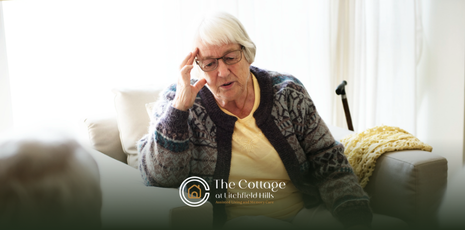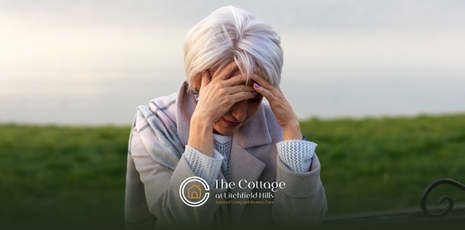5 Benefits of Assisted Living for Seniors

Key Highlights
- Assisted living provides 24/7 safety and emergency support for seniors.
- Personalized care plans ensure seniors receive the right level of assistance.
- Social activities and companionship help prevent loneliness and isolation.
- Nutritious meals and wellness programs promote healthier lifestyles.
- Families gain peace of mind and relief from caregiving responsibilities.
As your loved one ages, finding the right level of support becomes a top priority. Many families reach a point where independent living is no longer safe or practical for a senior parent or relative. That’s when assisted living becomes a valuable option, not just for the senior, but for the entire family.
Assisted living communities offer a unique blend of independence, support, and peace of mind. In this blog, we’ll explore five major benefits of assisted living that can improve both the quality of life for seniors and reduce stress for their loved ones.
Why Assisted Living May Be the Right Choice
Here are five of the most meaningful benefits that assisted living offers to both seniors and their families:
1. Enhanced Safety and Security
Safety is one of the most compelling reasons families consider assisted living for their aging loved ones. Seniors living alone are at greater risk for accidents, such as falls, medication errors, or even home break-ins. These risks are greatly minimized in an assisted living environment.
Key Safety Benefits:
- 24/7 Staff Availability: Trained professionals are always on hand to respond to emergencies or assist with mobility, bathing, or other daily tasks.
- Emergency Call Systems: Apartments are equipped with emergency response systems so help is only a button away.
- Secure Premises: Assisted living communities have secured entrances, monitoring systems, and visitor check-in procedures for safety.
These safety features give families peace of mind, knowing that their loved ones are in a protective environment with immediate help available when needed.
2. Access to Personalized Care
Another significant benefit of assisted living is access to care that is tailored to a resident’s specific needs. From help with daily activities like dressing and grooming to medication management, seniors receive the support they need to live comfortably.
Services Often Include:
- Assistance with activities of daily living (ADLs)
- Medication reminders and monitoring
- Help with mobility and personal hygiene
- Coordination with healthcare providers
Care plans are regularly reviewed and adjusted, ensuring each resident continues to receive the appropriate level of support. This allows seniors to retain as much independence as possible while still getting help when needed.
3. Social Engagement and Companionship
One of the hidden dangers of aging is social isolation. Seniors who live alone may feel lonely or disconnected from others, which can negatively impact both mental and physical health. Assisted living communities are designed to promote social interaction and a sense of community.
Social Benefits Include:
- Group activities like art, music, and exercise classes
- Holiday and birthday celebrations
- Shared dining experiences
- Clubs and interest groups
Being part of a social environment helps residents stay active, stimulated, and emotionally fulfilled. Friendships often form quickly, and even shy residents tend to blossom once they become part of a community that encourages interaction.
4. Healthy Lifestyle and Nutrition
Nutrition and overall wellness play a key role in maintaining a senior’s health. In assisted living, residents enjoy well-balanced meals prepared by professional chefs, often in consultation with dietitians. This ensures they receive the nutrients they need to stay healthy and energized.
Health-Focused Features:
- Daily meals and snacks that cater to dietary needs and restrictions
- Fitness programs tailored for older adults
- Wellness checks and routine health screenings
- Transportation to medical appointments
Additionally, structured routines around meals and exercise help establish healthy habits that can improve energy levels, mental clarity, and even immune function.
5. Relief and Peace of Mind for Families
Caring for an aging loved one at home can be physically demanding and emotionally draining. Even with the best intentions, family caregivers often find themselves overwhelmed with the constant responsibility. Assisted living relieves that burden.
Benefits for Families:
- No more worrying about daily care tasks or medical emergencies
- Time to rebuild and enjoy the family relationship instead of managing it
- Regular updates from staff on health and wellness
- Confidence in a loved one’s safety and happiness
When seniors move into assisted living, family members often experience an immediate sense of relief. Knowing your loved one is well cared for allows you to be present as a daughter, son, spouse, or friend again—not just a caregiver.
Final Thoughts
Choosing assisted living is a big decision, but it often leads to improved quality of life for both seniors and their families. From safety and support to social engagement and peace of mind, the benefits are both tangible and emotional.
If you're considering assisted living for your loved one, The Cottage at Litchfield Hills offers a warm, secure, and compassionate environment tailored to meet the needs of seniors and ease the concerns of families. Reach out today to learn more or schedule a visit.
Frequently Asked Questions
How do I know if my parent needs assisted living?
Signs include difficulty with daily activities, forgetfulness, frequent falls, medication mismanagement, or increasing isolation. A medical or geriatric assessment can also help determine the right level of care.
Can residents have personal belongings and furniture in assisted living?
Yes, most communities encourage residents to personalize their space with familiar furniture, décor, and keepsakes to make it feel like home.
What’s the difference between assisted living and a nursing home?
Assisted living provides support with daily tasks in a residential setting, while nursing homes offer more intensive medical care for individuals with serious health issues or disabilities.
Sources:
- https://www.healthinaging.org/tools-and-tips/tip-sheet-home-safety-tips-older-adults
- https://www.ncbi.nlm.nih.gov/books/NBK470404/
- https://pmc.ncbi.nlm.nih.gov/articles/PMC10329914/
- https://www.ncoa.org/article/exercise-programs-that-promote-senior-fitness/






